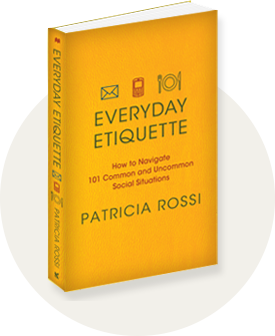Read your last email or message that you have sent to someone and ask yourself: did I use positive language? Is the content useful, constructive or helpful to the recipient? Or was it negative, full of mistakes, using foul and critical language and simply rude?
Here are some etiquette faux pas you should avoid when sending email communication or other electronic messages (iMessage, Gchat, Slack, Whatsapp, etc) to others.
# 1 – Proofread every message before you send it out. If spelling and grammar mistakes show up in your communication, the other person might get the impression that you: are poorly educated, do not pay attention to detail or have a careless attitude. If mistakes occur just once (maybe because you are in a rush) it might be overlooked, but if it happens on a regular basis you can be sure that you will lose credibility and trust. Your competence might be seriously questioned.
# 2 – Do not criticize people (eg. co-workers) in writing. Remember, whatever message you write can nowadays be forwarded to other people easily, quickly and at no cost. Thus, think twice what you write, no matter how upset you might feel about someone or something.
# 3 – Avoid using swear words and foul language. This approach will not impress anyone, and your reputation will suffer. It will not make you look like a kind and trustworthy person, on the contrary, it will put people off.
# 4 – Don’t overdo it. Avoid using too many emoticons. Also refrain from using multiple exclamation points and abbreviations (that not everyone might be familiar with).
# 5 – Don’t ramble on and on. Get to the point in what you want to convey. Time is precious.
# 6 – Don’t bombard someone with multiple messages. If someone is unresponsive, it could be that the person is on deadline for an important project . Be patient, otherwise try to get in touch in a different way.
Since we have many different options at our disposal to communicate with others, opportunities for miscommunication can easily occur. Let’s also not forget that others can’t see our body language and hear our tone of voice. Therefore, try to be always positive, constructive and helpful when interacting with others in email communication or online.




